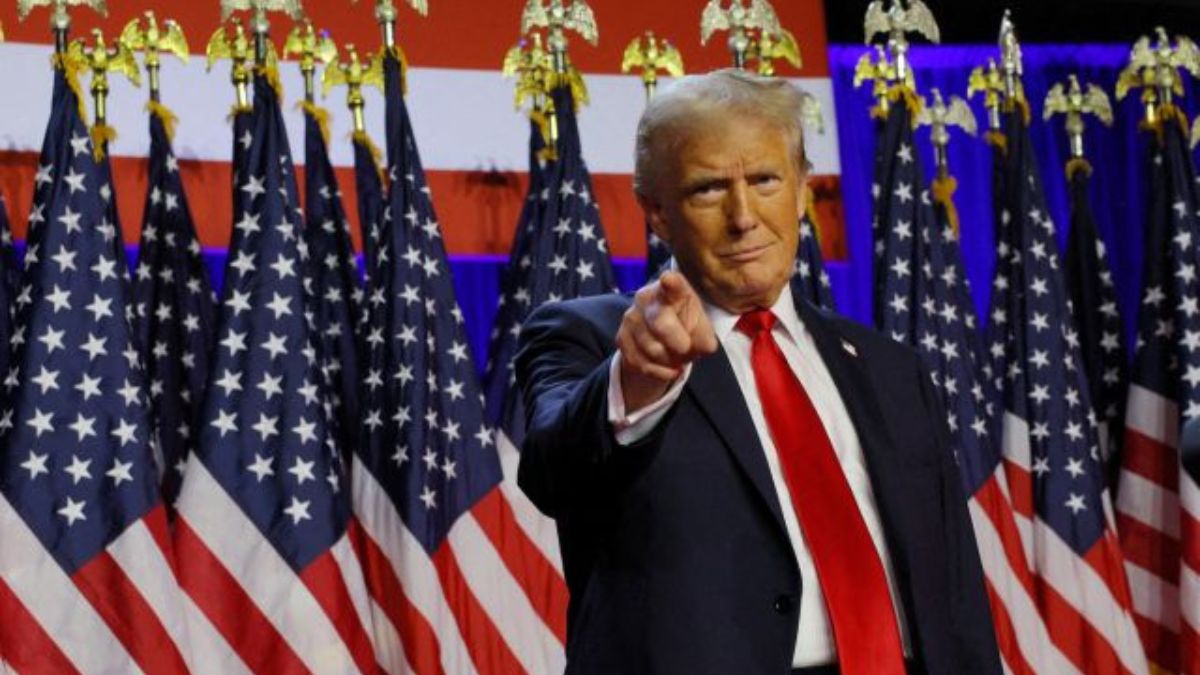United States President-elect Donald Trump is set to be sentenced on January 10, just ten days before his inauguration.
The case stems from his conviction on charges of falsifying business records related to hush money payments to adult film actress Stormy Daniels.
While the sentencing brings Trump closer to legal closure, Manhattan Judge Juan Merchan has indicated that incarceration is unlikely.
Why the case was not dismissed
Judge Juan Merchan announced that Trump’s sentencing will proceed despite the proximity to his inauguration. In his 18-page ruling, Merchan dismissed Trump’s request to delay the proceedings until after his presidency, stating the need to uphold the rule of law.
“The sanctity of a jury verdict and the deference that must be accorded to it, is a bedrock principle in our Nation’s jurisprudence,” wrote Merchan. He further clarified that Trump’s status as president-elect does not shield him from legal accountability:
“The Constitution dictates that only a President, after taking the oath of office, has the authority of the Chief Executive, a President-elect does not. Accordingly, a President-elect is not permitted to avail himself of the protections afforded to the individual occupying that Office. … Binding precedent does not provide that an individual, upon becoming President, can retroactively dismiss or vacate prior criminal acts nor does it grant blanket Presidential-elect immunity."
Merchan rejected Trump’s argument that the case should be dismissed in light of his presidential election victory, calling it “disingenuous.” He wrote, “Defendant has always pronounced, since the inception of this case, confidence and indeed the expectation that he would prevail in the 2024 Election — confidence that has proven well-founded.”
Trump’s legal team argued that the sentencing would disrupt his ability to prepare for office. “This lawless case should have never been brought, and the Constitution demands that it be immediately dismissed,” Trump spokesperson Steven Cheung Cheung said.
However, Merchan dismissed this as a reason to overturn the conviction, stating, “To dismiss the indictment and set aside the jury verdict would not serve the concerns set forth by the Supreme Court in its handful of cases addressing Presidential immunity nor would it serve the Rule of Law. On the contrary, such decision would undermine the Rule of Law in immeasurable ways.”
Why the judge ruled out jail time
Despite the serious nature of the charges, Merchan made it clear that he is not inclined to impose a jail sentence. The judge indicated that an “unconditional discharge” — a sentence without imprisonment, fines, or probation — would be the most appropriate outcome.
“While this Court as a matter of law must not make any determination on sentencing prior to giving the parties and Defendant opportunity to be heard, it seems proper at this juncture to make known the Court’s inclination to not impose any sentence of incarceration,” Merchan wrote.
This decision takes into account Trump’s age (78), lack of prior criminal history, and the practical considerations of his impending presidency. Legal experts agree that this approach balances the gravity of the offense with Trump’s unique circumstances.
How Trump influenced the trial
Throughout the trial and subsequent proceedings, Merchan took note of Trump’s public attacks on the legal system. In his ruling, the judge criticised Trump’s “unrelenting and unsubstantiated attacks” on the judiciary, stating:
“Defendant’s disdain for the Third Branch of government, whether state or federal, in New York or elsewhere, is a matter of public record. Indeed, Defendant has gone to great lengths to broadcast on social media and other forums his lack of respect for judges, juries, grand juries and the justice system as a whole.”
Merchan added that Trump’s public statements factored into his analysis of the defendant’s character and history: “Defendant’s character and history vis-à-vis the Rule of Law and the Third Branch of government must be analysed. In that vein, it does not weigh in his favour.”
Merchan on why the jury’s verdict must be held
Merchan highlighted the importance of respecting the jury’s unanimous decision, which found Trump guilty of 34 counts of falsifying business records. The charges relate to a $130,000 payment made by Trump’s former attorney, Michael Cohen, to Stormy Daniels during the 2016 election.
“It was the premeditated and continuous deception by the leader of the free world that is the gravamen of this offense,” Merchan wrote. “To vacate this verdict on the grounds that the charges are insufficiently serious given the position Defendant once held, and is about to assume again, would constitute a disproportionate result and cause immeasurable damage to the citizenry’s confidence in the Rule of Law.”
Merchan also dismissed Trump’s argument that his “civic and financial contributions” warranted leniency.
What this means for Trump
This sentencing makes Trump the first President-elect in US history to face sentencing for a felony conviction. While Merchan’s decision ensures Trump can appeal the conviction, the president-elect has continued to denounce the case, calling it a “hoax” and “nothing but a rigged charade” perpetuated by Manhattan District Attorney Alvin Bragg.
However, Merchan remained firm in his ruling, stating that allowing the case to proceed serves both justice and public expectations.
“This Court recognises the importance of considering and balancing the seemingly competing factors before it: ensuring that the Executive Branch is free to fully dispense the duties of the President and safeguard the interests of the Nation, unencumbered by pending criminal proceedings; to ensure that the Supreme Court’s ruling and the citizenry’s expectation be honored that all are equal and no one is above the Iaw; and the importance of protecting the sanctity of a jury verdict. This Court is simply not persuaded that the first factor outweighs the others at this stage of the proceeding, either on its own or in conjunction with the other … factors.”
Also Read | Stormy Daniels recounts 2006 sexual encounter with Donald Trump
With inputs from agencies
)